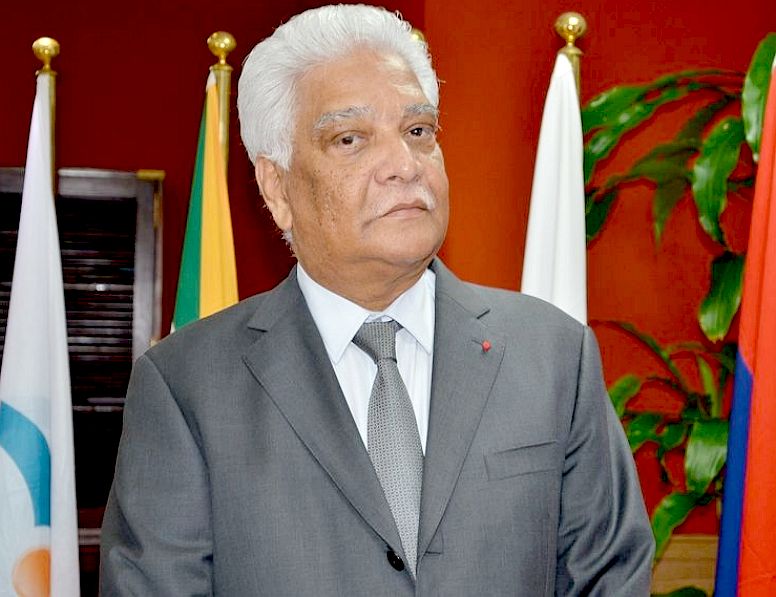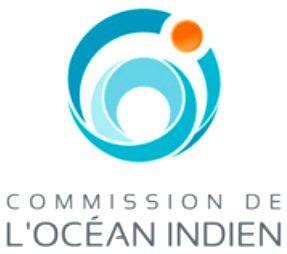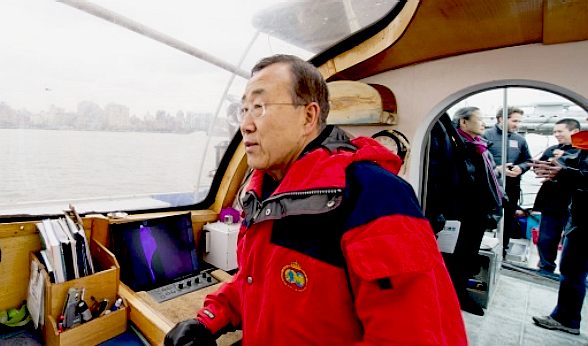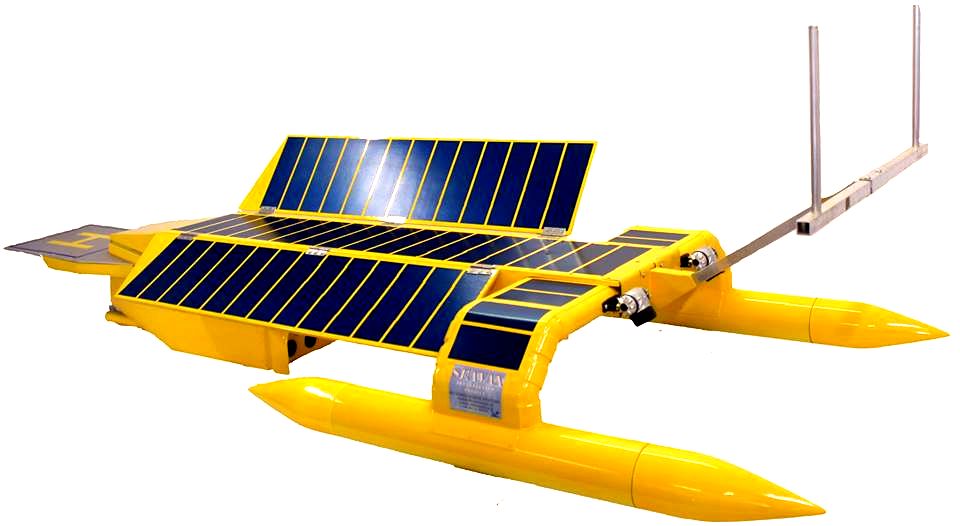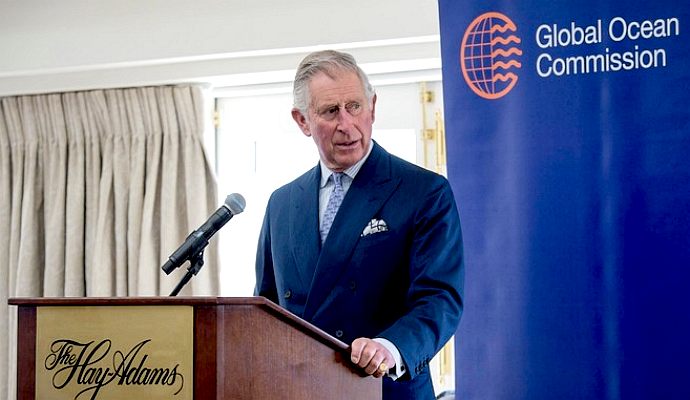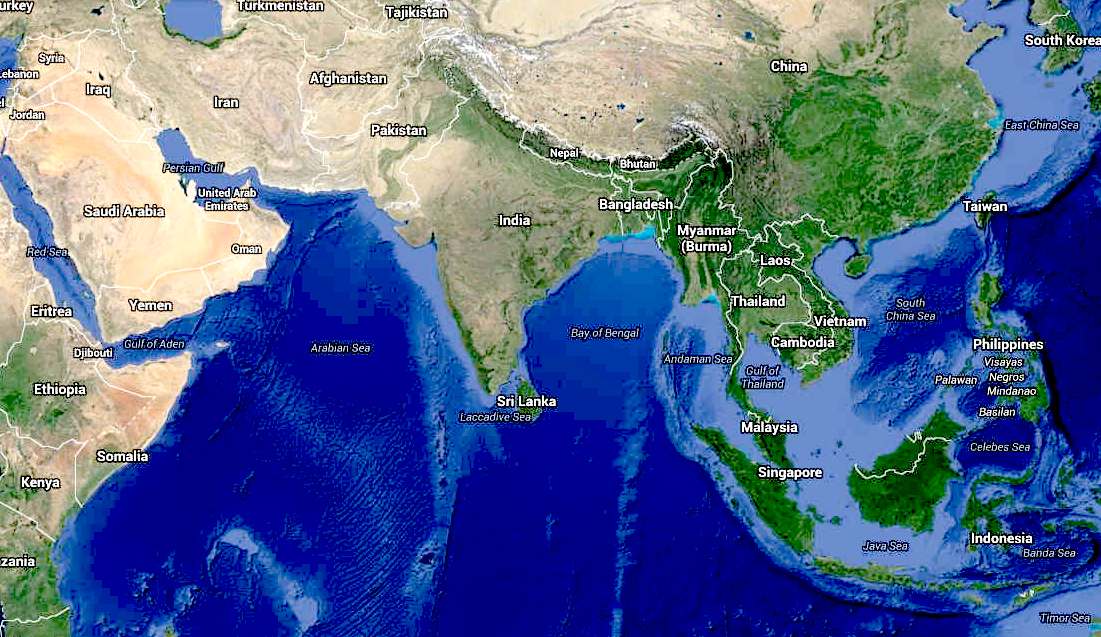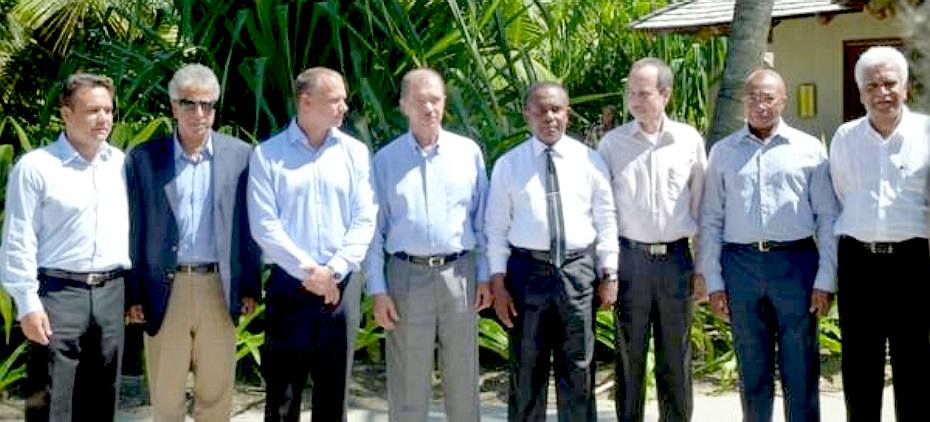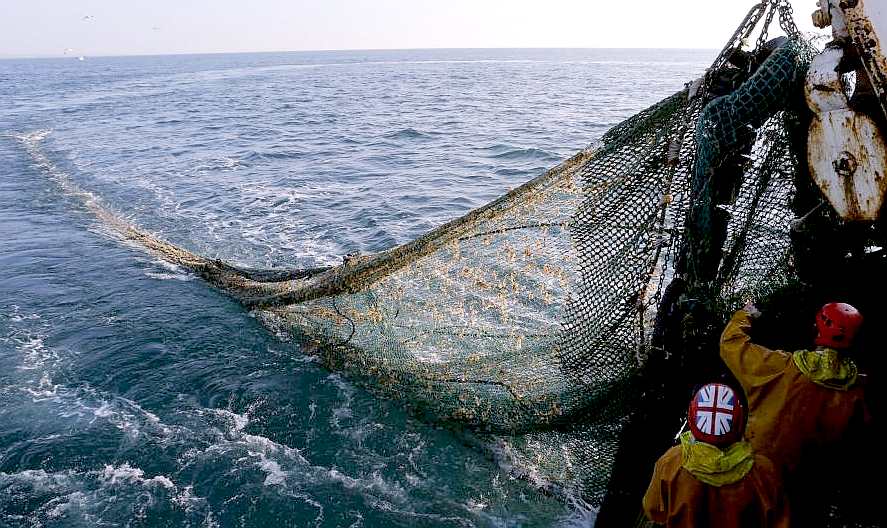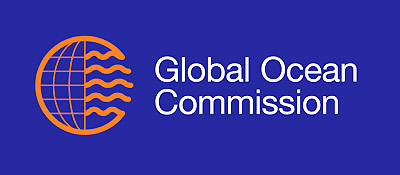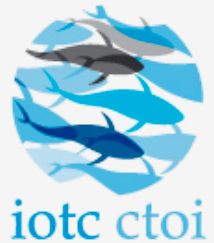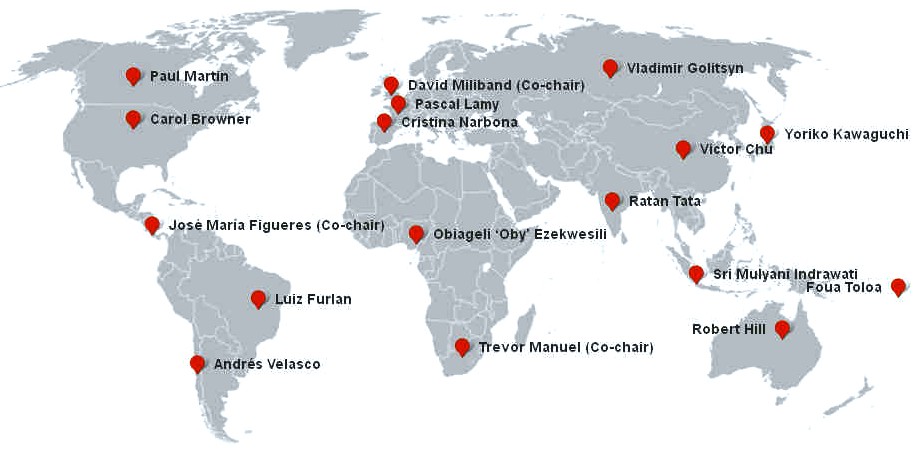|
THE INDIAN OCEAN COMMISSION
|
||
|
The candidature of the Mauritian Jean-Claude de L'Estrac, currently Secretary-General of the Indian Ocean Commission (IOC *), to take the suite of former Senegalese president, Abdou Diouf, head of the international organisation of la Francophonie (OIF) since 2003 and whose third term ends at the end of November 2014, is supported by the countries of the Indian ocean gathered in the heart of the IOC and also by members of the common market for Eastern and southern Africa (COMESA).
The
Indian Ocean Commission (IOC) is an intergovernmental organization that was created in 1982 at Port Louis, Mauritius and institutionalized in 1984 by the Victoria Agreement in Seychelles. The IOC is composed of five African Indian Ocean nations: Comoros, Réunion (a department of France), Madagascar, Mauritius and Seychelles. Notwithstanding their different characteristics (Reunion as a French department; Mauritius and Seychelles as Middle-Income Countries whereas Comoros and Madagascar are amongst the Least-Developed Countries), the five islands share geographic proximity, historical and demographic relationships, natural resources and common development issues.
IOC AGENDA 2005
The IOC works on four pillars which have been adopted in 2005 by the Summit of Heads of States:
WORLD
OCEAN DAY MESSAGE, JUNE 8 2015 - Oceans are an essential component of the Earth's ecosystem, and healthy oceans are critical to sustaining a healthy planet. Two out of every five people live relatively close to a shore, and three out of seven depend on marine and coastal resources to survive. Our oceans regulate the climate and process nutrients through natural cycles while providing a wide range of services, including natural resources, food and jobs that benefit billions of people.
UN
CONCERNS ON MARINE LITTER - In the Rio+20 outcome document, marine litter/debris is considered as one of the major concerns as it negatively affects the health of oceans and marine biodiversity, therefore it calls for actions to achieve significant reductions in marine debris by
2025 to prevent harm to the coastal and marine environment (paragraph 163 of The Future We Want). In The Oceans Compact which was launched during the Yeosu Expo 2012, UN Secretary General
Ban Ki-moon further calls upon all countries to set relevant national targets for nutrients, marine debris and waste water to protect people and improve the health of the oceans.
As part of the drive to clean up our oceans, we hope that projects to target plastics that do get into the oceans, may receive recognition and/or support. One such project is the Cleaner Oceans Project with plans to develop ocean scrubbers based on the 'proof of concept' boat seen above. Contact BMS for more information.
EU PARTNERSHIP WITH THE IOC
HRH THE PRINCE OF WALES - speaking at a Global Ocean Commission event in Washington DC in March of 2015. The future King of England has consistently kept a weather eye open to help safeguard the marine environment. Prince Charles also met with President Obama on this visit to the USA. The US President is quoted as saying that climate change is one of the greatest threats to security.
The IOC also implements part of two 10th EDF programmes which are under the responsibility of COMESA, namely: The InterRegional Coordination Committee (IRCC) Project to support the Indian Ocean Commission in ensuring its tasks within the IRCC configuration. Activities which have been undertaken by the IOC since February 2011, and will be continued up to August 2012 include: support to the preparation of new projects; support to the strengthening and restructuring of the IOC Secretariat; setting up of the IOC Project Monitoring and Evaluation System; facilitation for the development of an economic strategic plan for IOC; and drawing up of IOC Strategic Development Plan for 2012-2016.
Indian Ocean Commissioners Tourisme 17 Juin 2015
COOPERATION IS ESSENTIAL - The Arabian Sea and Bay of Bengal are not included in the area that the Indian Ocean Commission is looking out for. But the tons of plastic floating in our oceans is a serious problem no matter where you put your finger on any map because the ocean currents carry waste from one area to another continuously.
Any ocean cleanup plan using direct action, as per the SeaVax proposals, need to look at what neighbours are up to, and seek their cooperation to make a strategy workable.
Ninety percent of all trash floating on the ocean’s surface is in the form of plastic materials, with 46,000 pieces of plastic per square mile. Plastic does not biodegrade, it photo-degrades with sunlight, breaking down into smaller and smaller pieces. These plastic pieces are eaten by marine life and eventually works it way up the food chain - as per the diagram below.
INDIAN OCEAN COMMISSIONERS - 28th Board: From left to right: Mr. Didier Robert, President of the Regional Council of Reunion, Mr. Arvin Boolell, Minister of Foreign Affairs, Regional Integration and International Trade of the Republic of Mauritius, Mr Jean Paul Adam, Minister of Foreign Affairs of Seychelles, Mr. James Michel, the President of the Republic of Seychelles, Mr. Mohamed Bakri Ben Abdoulfatah Sharif, Minister of Foreign Affairs and Cooperation, responsible for Diaspora, Francophonie and the World Arab Union of the Comoros, Mr. Joel Morgan, Minister of Internal Affairs and Transport of Seychelles, Mr. Pierrot J. Rajaonarivelo, Foreign Minister of the Republic of Madagascar, Jean Claude de l'Estrac, Secretary General IOC.
IOC
CONTACTS
Tel: (+230) 4026100 Fax: (+230) 4656798 Email: secretariat@coi-ioc.org
RICH COUNTRIES PAY ZOMBIES $5 BILLION A YEAR IN SUBSIDIES TO PLUNDER THE OCEANS
- The industrial fleet that now drags the high seas for fish has a combined engine power 10 times stronger than it did in 1950. Its nets are so huge that they’re sometimes big enough to hold 12
jumbo
jets. And it is largely thanks to this all-out assault on high-seas fishing stocks that two-thirds of those stocks
are at the brink of collapse - or well past the edge.
LINKS & REFERENCE
EEAS Europa EU delegations Mauritius regional_integration Indian_Ocean_Commission Wikipedia Indian_Ocean_Commission Prevention web professional contacts Indian Ocean Commission IOTC Indian Ocean Tuna Commission Oceans Beyond Piracy Indian Commission http://www.iotc.org/ http://oceansbeyondpiracy.org/matrix/indian-ocean-commission-ioc http://www.preventionweb.net/english/professional/contacts/v.php?id=4797 http://eeas.europa.eu/delegations/mauritius/regional_integration/indian_ocean_commission/index_en.htm http://www.commissionoceanindien.org/accueil/ https://en.wikipedia.org/wiki/Indian_Ocean_Commission http://missionocean.me/ http://en.wikipedia.org/wiki/European_Commissioner_for_Maritime_Affairs_and_Fisheries http://www.virgin.com/unite/leadership-and-advocacy/introducing-global-ocean-commission http://www.scienceifl.com/ocean-plastic-pollution.htm http://abcnews.go.com/US/wireStory/prince-charles-speaks-dangers-plastic-waste-oceans-29736519 http://www.globaloceancommission.org/ http://time.com/3750375/environment-prince-charles-oceans/ http://news.nationalgeographic.com/2015/03/150318-prince-charles-oceans-trash-plastic-britain/ http://en.wikipedia.org/wiki/Global_Ocean_Commission http://www.itv.com/news/2015-03-18/prince-charles-makes-impassioned-plea-for-oceans-clean-up/
ACID OCEANS - ARCTIC - ATLANTIC - BALTIC - BAY BENGAL - BERING - CARIBBEAN - CORAL - EAST CHINA - ENGLISH CH GULF GUINEA - GULF MEXICO - INDIAN - MEDITERRANEAN - NORTH SEA - PACIFIC - PERSIAN GULF - SEA JAPAN - STH CHINA PLANKTON
- PLASTIC
- PLASTIC
OCEANS - UNCLOS
- UNEP
- WWF
|
||
|
This website is Copyright © 2015 Bluebird Marine Systems Ltd. The names Bluebird™, Bluefish™, Miss Ocean™, SeaNet™, SeaVax™ and the blue bird and fish in flight logos are trademarks. CONTACTS The color blue is a protected feature of the trademarks.
|
